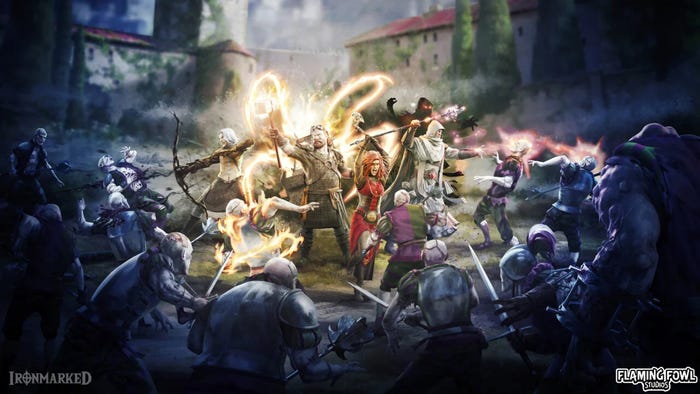
Featured Blog | This community-written post highlights the best of what the game industry has to offer. Read more like it on the Game Developer Blogs.
The topic of RMT (Real Money Trading) and Cash Shops is often an electric issue for gamers and creators alike. With the advent of an increasingly mixed market, in regards to payment methods used, there has been more and more variation.

[Read it at Blog3000]
The topic of RMT (Real Money Trading) and Cash Shops is often an electric issue for gamers and creators alike. With the advent of an increasingly mixed market, in regards to payment methods used, there has been more and more variation. Not long ago, North American and European MMOs generally have relied on a subscription model. Comparatively, the Asian markets are filled with free-to-play titles with cash shops in addition to some subscription based titles. Today, more MMO makers are willing to try something new. Triple-A titles like Dungeons and Dragons Online are an exceptional example of success of the free-to-play model in a western market. Well known games that use a free-to-play model with a cash shop include Silk Road Online and Runes of Magic.
In a typical free-to-play model, players are able to spend real currency on in-game upgrades. These upgrade often range between a simple glow to a weapon more powerful than anything the player could otherwise gain by any other way. Other cash items often include consumable items that will increase the experience, loot reward, or in-game currency reward by a percentage for a limited time. This is all in contrast to the western popular typical subscription model wherein players subscribe by the month or longer for full game access equal to all other subscribers.
Additionally, there are shades of grey often ignored or not considered. Name changes, character transfers, and cosmetic changes are sometimes permitted with a fee. World of Warcraft is one of those games that have RMT, but are not considered to be in the same league of cash shops. Guild Wars has several RMT options, including additional character slots and the unlocking of skills and cosmetic pets. The fact is they do have RMT, and players often do spend money in excess of their monthly subscription for things that improve their experience.
Critics of RMT often contest two main issues. The first issue being a matter of cash shops being an existence of pure greed. The game maker just want to make as much money as possible. That's true. If you have a problem with the fact that a company wants to make as much money as possible, you have an issue with capitalism. The other issue is more of a matter of game balance, and that is that these items and abilities gained through spending real money make success in-game a matter of having enough cash. This is a sentiment that I can begin to agree with. A hallmark of an unbalanced cash shop would be when the player feels they need to spend more than they would in a subscription game, just to be competitive or when a player can buy so much in a cash shop they can totally outshine or dominate the non-paying players.
I can't help but think back to an article from a recent Blog Post Spotlight on Character vs Player rewards. The main point being in comparing in-game rewards that benefit the player vs in-game rewards that benefit the player. To keep a game balanced and fair, RMT should be limited to player rewards. By that I mean, cash shops should, in general, limit themselves to cosmetic changes to the game if the designers want to keep players in the western market happiest.

ddostore
An exception to this would be, what I consider an excellent example of a game with a free-to-play/cash shop business model, Dungeons & Dragons Online. Magic items bought in a DDO Store are restricted by level. You can't buy something in the DDO store that you couldn't get with a few hours of gameplay. Other things available in the gamestore include common experience/reward increasing potions and unique modules of dungeons and quests. Dungeons & Dragons Online and their DDO Store nail a difficult balance of free-to-play, RMT, and subscription, and they've seen great success in it.Properly designed, a cash shop can bee a boon to both players and developers. There are, however, a lot of people that will completely dismiss the so-called free-to-play model. Games can certainly find success in a heavy microtransaction based environment, but you don't have to alienate a whole demographic of potential subscribers or break an otherwise balanced game.
Read more about:
Featured BlogsAbout the Author(s)
You May Also Like









